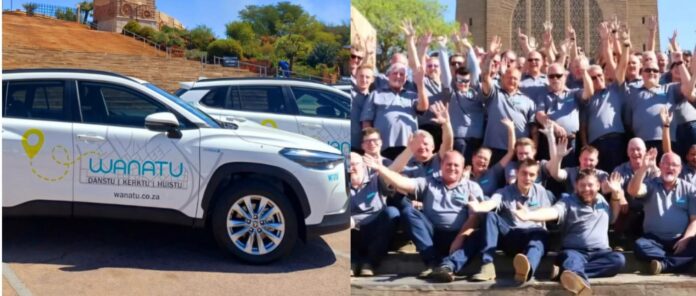In a rapidly evolving e-hailing industry dominated by global giants like Uber and Bolt, Wanatu has emerged as a disruptive force in South Africa, offering a unique blend of cultural identity, safety, and social responsibility.
By focusing on the Afrikaans-speaking community prioritising premium safety features, Wanatu has carved out a niche market that sets it apart from competitors. However, its innovative model also raises important legal questions about language-based employment practices and labor law compliance.
This article delves into Wanatu’s key differentiators, from its exclusive Afrikaans language focus and direct employment model to its structured operations and niche market targeting. We also explore the potential legal implications of its approach, including discrimination claims and the burden of proof required to justify its language requirements.
Exclusive Afrikaans language focus
Wanatu’s decision to require drivers to speak Afrikaans — even if it’s not their home language — has sparked both praise and controversy. By catering to Afrikaans-speaking communities, the platform aims to “restore dignity in Afrikaans jobs” it maintains, while serving niche markets like elderly passengers and schoolchildren.
The inclusion of an English translation button ensures accessibility for non-Afrikaans users, but the language requirement remains a defining feature of its brand identity.
Direct employment model
Unlike Uber and Bolt, which rely on independent contractors, Wanatu employs drivers directly. This salaried model ensures compliance with labor laws, prioritises safety over speed, and provides drivers with financial stability regardless of ride volume.
Premium safety features
Wanatu’s fleet of 50 Toyota Corolla Cross hybrids is equipped with advanced safety features, including dashcams, inward-facing cameras, GPS tracking, panic buttons, and 24/7 armed response links. Rigorous driver vetting — covering criminal record checks, defensive driving, conflict management, and tech education — further enhances passenger safety.
Structured operations and niche market targeting
By assigning shifts rather than allowing self-scheduling, Wanatu ensures consistent service quality. Its focus on safety-conscious customers, including schoolchildren, the elderly, and people with disabilities, allows it to avoid direct price competition with Uber and Bolt.
Social responsibility
Wanatu’s commitment to social responsibility is evident in its donation of R2 per ride to Solidariteit Helpende Hand, a charity linked to the trade union Solidarity. This initiative underscores its dedication to supporting local communities.
Legal implications of Wanatu’s model
Potential discrimination claims
As Werksmans Attorneys points out, Wanatu’s Afrikaans language requirement may face scrutiny under Section 9(4) of the South African Constitution and the Employment Equity Act, which prohibit unfair discrimination on the basis of language.
The platform must demonstrate that Afrikaans proficiency is inherent to the job, a challenge complicated by its English app feature.
Case law precedents
Legal precedents, such as the 2006 Stojce v University of KZN and the Metorex Case, highlight the importance of proving that language requirements are essential for effective communication.
In the 2006 case, the Labour Court upheld the employer’s decision not to appoint a senior lecturer who lacked sufficient English fluency, highlighting the the importance of effective communication for the role.
In a similar case in the 2021, the Labour Appeal Court ruled in favour of a company requiring Chinese proficiency for managerial positions was justified due to its reliance on communication with Chinese stakeholders. As such, Wanatu’s ability to justify its language policy will be critical in defending against potential discrimination claims.
These precedents suggest that language requirements can be upheld if they are intrinsically necessary for job performance.
“However, Wanatu faces a challenge in proving that Afrikaans proficiency is indispensable for its drivers,” said Werksmans Attorneys.
Contractor vs. employee status
The direct employment model ensures compliance with labor laws, but it also places additional responsibilities on Wanatu. If drivers were classified as independent contractors, constitutional equality laws would still apply under the Promotion of Equality Act.
Burden of Proof
Wanatu must prove that its language requirements are rational, fair, and critical to service delivery. This burden of proof will be a key factor in determining the legality of its model.
About Wanatu; brief background
Launched in October 2024, Wanatu is a new e-hailing service that exclusively employs drivers fluent in Afrikaans and has begun operating in Centurion, Pretoria.
The name Wanatu is a clever nod to the Afrikaans phrase “Waarnatoe?” (English: “Where to?”). Funded by private investors, the service is accessible to all users, as the platform’s app includes an English translation button, according to CEO Judith van der Walt.


